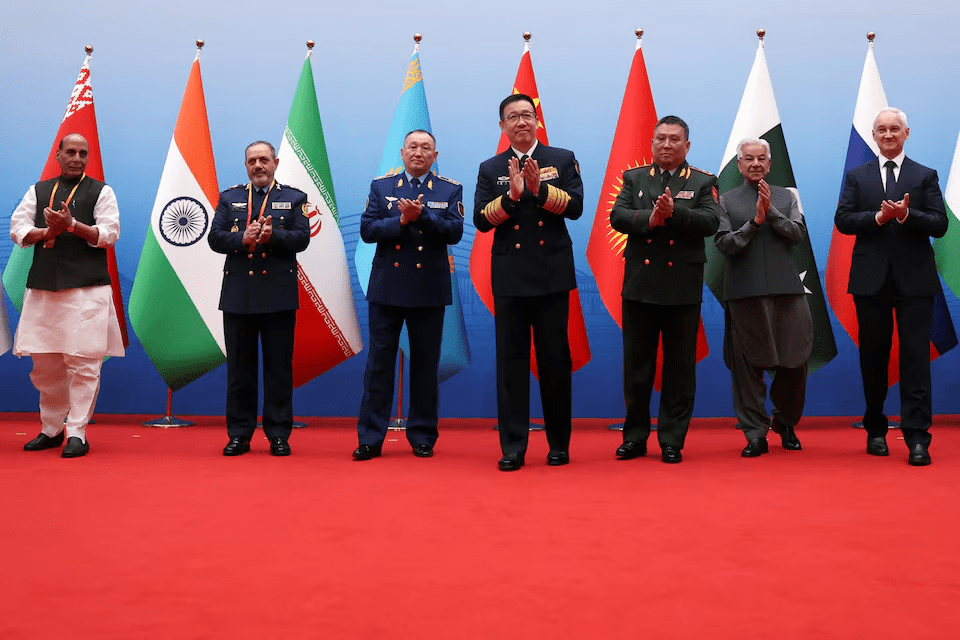The Defense Ministers of the Shanghai Cooperation Organization (SCO) could not adopt a joint statement in their meeting in Qingdao, China, after India refused to sign the document, claiming that it was pro-pakistan for not referring to April’s attack against Indian tourists.
The SCO is a European political and security bloc of 10 members comprising China, Russia, India, Pakistan, Iran and several states of Central Asia. The Meeting of the Defense Ministers was held before the annual leaders of leaders scheduled by the end of this year.
The Federal Defense Minister, Khawaja Muhammad Asif, directed the Pakistan delegation at the meeting, where he reaffirmed the country’s commitment to regional stability, collective security and anti -terrorist cooperation.
In his speech, the Minister condemned the recent military actions of Israel against Iran and the continuous violence in Gaza while requested peaceful resolutions to global long -standing disputes, including Kashmir and Palestine.
Read more: Sco brings together Pakistan, Indian Defense Ministers
Underline the importance of the SCO as a platform for dialogue, mutual trust and regional cooperation, Mr. Asif reiterated Pakistan’s commitment to the principles of the United Nations Charter and the SCO letter, describing them as essential to promote global peace, good neighboring relations and multilateral collaboration.
He also condemned the recent terrorist attack in Jammu & Kashmir of illegal occupation (Iiojk), urging the international community to hold those who finance and support such acts. He also referred to the bombing of Jaffar Express in Baluchistan as another example of cross -border terrorism that undermines regional peace.
Highlighting unresolved conflicts such as serious threats to global stability, Mr. Asif emphasized the need for a peaceful resolution of issues such as Kashmir and Palestine through diplomacy, mediation and sustained dialogue.
However, the meeting faced a setback when India refused to support the final statement, arguing that she favored Pakistan’s position. The Indian delegation opposed the omission of any reference to the April 22 attack on Hindu pilgrims in Iiojk, in which 26 people were killed.
India blamed Pakistan for the incident, a position of Islamabad firmly rejected. The attack led some of the most intense cross -border exchanges in years, after India claimed to have directed the “terrorist infrastructure” in Pakistan and Azad Jammu and Kashmir.
Pakistan denied the accusation, stating that the attacked sites were civilly and had no links with terrorism.
Read too: Rajnath to attend Sco Summit in China
Citing anonymous sources, the foreign news agency reported that India Defense Minister Rajnath Singh believed that the draft of the statement “diluted India’s position on critical issues such as terrorism and regional security.”
According to reports, Singh said the joint statement “adapted to Pakistan’s narrative” because he omitted the April attack, but included the mention of the terrorist activity in Baluchistan, a region where Pakistan has long accused India for a long time to support separatist elements, accusations that New Delhi denies.
“Certain members, the member countries, could not reach a consensus on certain issues and, therefore, the document could not be completed on our side,” said the spokesman for the Indian Ministry of Foreign Affairs, Randhir Jaiswal, to journalists in a weekly media information session.
“India wanted concerns about terrorism reflected in the document, which was not acceptable to a particular country and, therefore, the statement was not adopted,” he said, without appointing the country.
The Qingdao meeting marked the high -level ministers of India and Pakistan shared a stage from their military confrontation in May.




